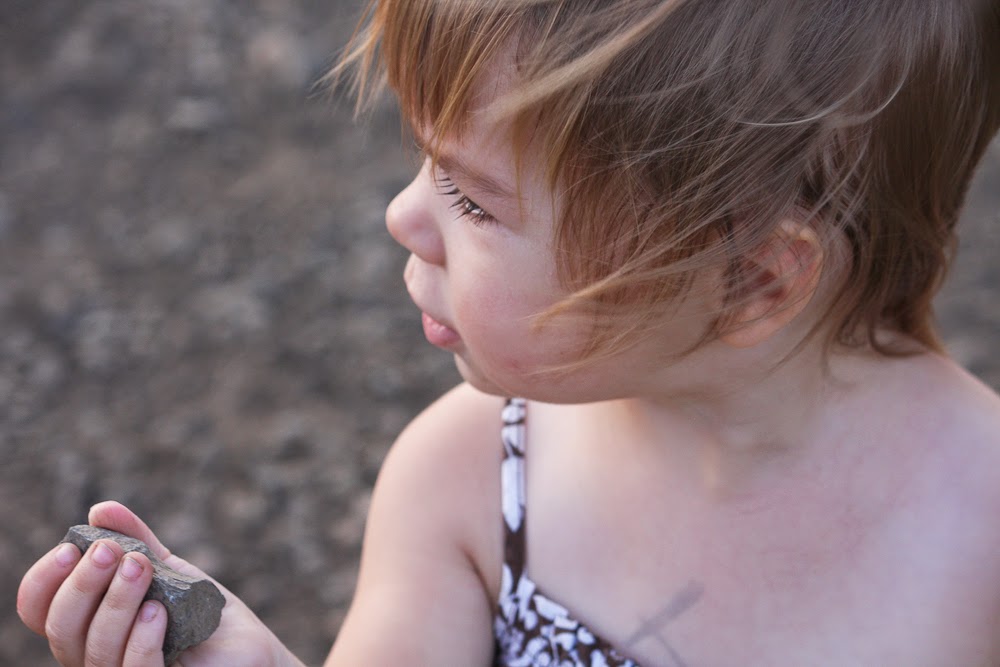Mzunguzungu
In Swahili, the language of Tanzania, the word for a white person is "mzungu," and I am told it means, “one who goes in circles.” I can see the humor in the origin—the first Europeans arriving and wandering through this vast terrain, getting lost and going in circles, but always going, always on the move. In this patient culture, where time is fluid and relationships are of utmost importance, the efficiency and determination of my culture can be a hinderance. Sometimes I really do feel like a “mzunguzungu,” like a person growing dizzy from turning circles in the same place.
I know that with any change comes grief, and over the past two months, I have grieved and felt called to be brave, to be of good courage. In recent days, though, I have sensed the tide turning, the comfort I feel in this place slowly growing. I still miss people I love—the familiar faces and the connectedness of sharing spaces and time zones. But I am grateful for new faces becoming more familiar, for the grace of an extended hand, for this unique mix of cultures and colors, so many of us strangers in a strange land.
Anytime the known clashes with the unknown, comparisons are inevitable and almost involuntary—it’s hard not to feel the sharp contrasts of cold and heat, carpet and concrete. As I’ve settled into this new place, I’ve noticed that the edges of these differences have softened, and I puzzle over how to speak of them. How do I compare these things without the usual declarations of good or bad? In one land, we eat apples and grapes and play in piles of colorful leaves. In another, we eat mangoes and passion fruit and play in the presence of monkeys. Suddenly my comparisons feel unfair. These places: they are what they are, and they ask to be accepted for what they are, without the weight of being what they are not.
If beauty is in the eye of the beholder, than perhaps the beholder must choose to turn her eyes to what is beautiful. And so I name these things I see as beautiful: the bright new-green of a leaf, sun-drenched and glowing. Sunset through a smoky sky. The laughter that covers over a multitude of awkwardness. The abundant hospitality of people here, where "come visit" doesn't mean "sometime," but right now, come and sit and eat and talk and linger like we have nothing else in the world to do.
I watch with amazement at the ways my children, young and adaptable, begin to take on the contours of this new place. My tall daughter adopts the accent of her friends from India, until her voice is barely recognizable to me. My son inquiries politely as to the cleanliness of the water before he will drink it. My small daughter responds correctly, charmingly, to the local slang greeting. Even the sparseness of our belongings force them to adapt, to be ever more creative: a pile of dry leaves and dirt becomes play food, a roll of crepe paper becomes clothing for dolls. Games at the park stretch on endlessly, games real or imagined, with only a ball or a handful of flowers as props in the drama.
At church last Sunday, the congregation sang a song that our family first learned from my brother-in-law, who learned it in Namibia. It’s a song sung all over the world, in many languages, and it talks about walking and turning and searching and finding in the end that, “There’s no one, there’s no one like Jesus. There’s no one, there’s no one like him.” On Sunday we sang it in Swahili, and so we danced to “Hakuna mungu kama wewe”—there’s no God like you. Later, at the home of some Tanzanian neighbors, I sang the song again and they joined in, laughing at me as I turned circles, relishing the sound of our voices raised together.
I am longing this week to cease my mzungu wanderings. I am longing to stop turning in circles and to plant my feet firmly on this dusty earth and to claim the kingdom come, here, now, as it is in heaven. I am longing for the contentment of naming grace when I see it, of receiving life as it is as the gift that it is. And so I pray…
We have wandered and searched, and there’s no God like you, Jesus. May your kingdom come in me, and by your power and grace, may my life speak of the kingdom come. Give me the patience to let you do your good work in me, the wisdom to linger, and the courage to move when you call me to move. Amen.












I really enjoy reading about your transition and this stage of life for you. Your children are beautiful!
ReplyDelete~Tim Watson
I know that song from my childhood in Cameroon!
ReplyDeleteI love following you in your reflections through this journey, Naomi. I'm so glad you're reflecting, writing, and sharing.
And having moved in and out of many new and different cultures, I am SO with you. Different doesn't mean good or bad; it's just different. And there is beauty everywhere, because God is everywhere.
I adore that photo of R and M with their little friend. And oh, how very tall and lovely G is!
Love reading your reflections. Allows me to reflect too in the midst of a culture here that does not encourage that. Was grieving this week in missing you, my friend, but the tears felt good as I remember what a gift your friendship is. Love you.
ReplyDeleteLove reading your reflections. Allows me to reflect too in the midst of a culture here that does not encourage that. Was grieving this week in missing you, my friend, but the tears felt good as I remember what a gift your friendship is. Love you.
ReplyDelete